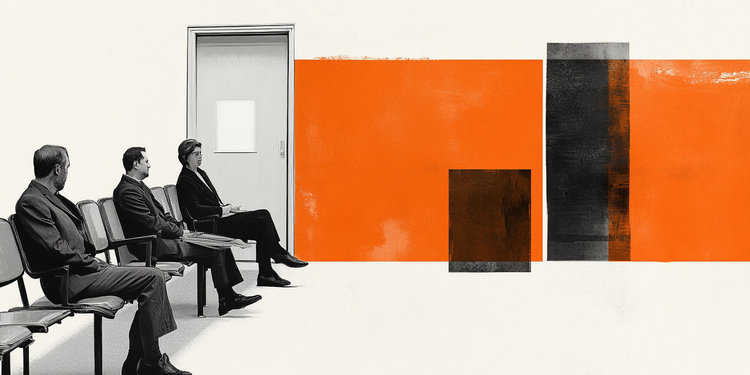Of the 27 Brazilian capitals, only Boa Vista, Brasília, Curitiba, Fortaleza, Palmas, Porto Alegre and Porto Velho are prepared to install 5G technology, according to Conexis, an entity that brings together the main telecommunications companies in the country.
That’s because the survey shows that only these seven cities are well adapted to the General Law of Antennas (LGA), of the federal government.
In order to expand the coverage of the new technology, federal legislation seeks to simplify the rules for installing antennas.
An example is the positive silence, in which city halls have up to 60 days to respond to license requests and, if there is no response within the period, companies can install the antennas in accordance with technical requirements.
Specialists claim that requirements and bureaucracies in municipal legislation can hinder the implementation of the technology in Brazil.
TO CNN, Marcos Cavalcanti, professor at UFRJ and Coordinator of the Reference Center for Business Intelligence, emphasizes that the cities’ delay in adjusting the laws has an economic and social impact.
“There are definitely problems with delay. Telecommunication goes far beyond communication itself, it is also fundamental for the economy, and I think that many municipal authorities still do not understand that the issue is much bigger”, he says.
“All sectors are involved, tourism, health, accommodation, food. For example, for a company that wants to settle in one place, the basic thing is that there is a good communication system”, completes Marcos.
Along the same lines, the president of Conexis, Marcos Ferrari, points out that the restriction on the installation of antennas could interfere with the goal of the capitals, which ends in July of next year, in addition to the connectivity of residents.
“The notice provides for the obligation to deploy 1 5G antenna for every 100,000 inhabitants by July 31, 2022. The restrictions may make it difficult to meet the target and restrict the location, within the capital, that these infrastructures will be installed. But the sector has been in dialogue and we believe that cities will adapt the most modern laws that facilitate connectivity”, says Ferrari.
In the Southeast, no capital is prepared, according to the survey. However, Rio, São Paulo and Belo Horizonte are working for new legislation, while Vitória is still far from federal law.
In the case of Rio, the law that regulates 5G technology was approved on October 19th. However, the president of Conexis recalls that some fundamental points of the project were vetoed by the executive branch.
“The law approved in Rio is positive, has the support of the sector and adheres to the General Law on Antennas, but some important points were vetoed and these vetoes have not yet been analyzed by the Chamber of Councilors. Among these points is the one that exempts the licensing of mini antennas, which are those that will be used in 5G; the veto of positive silence; no need for environmental licensing; and the period of regularization of the antennas currently installed”, he explains.
CNN sought the Rio City Council and there is still no date for lawmakers to analyze the vetoes.
According to the Chamber, the city hall claims that “the sections were vetoed because the Legislative power would be interfering in the typical activity of the Executive”. The city was also questioned and CNN is awaiting their return.
The 5G antennas are much smaller, reaching the size of a shoebox and can be installed on building facades, garbage cans and light poles.
According to Professor Cavalcanti, not releasing the licensing for mini-antennas is a mistake, as it hinders the access of the population, especially those with less purchasing power or who live in places far from urban centers.
“The antenna laws should make life easier for citizens, so that they have access to fast and quality internet. So much bureaucracy doesn’t make sense”, he says.
Meanwhile, Luciano Stutz, president of the Brazilian Association of Telecommunications Infrastructure (Abrintel) and of the Antene-se Movement, affirms that there is no downside to reducing bureaucracy in the rules regarding 5G antennas.
“Since the predominance in 5G will be smaller antennas, we only see positive aspects in the alignment of municipal legislation with federal laws that already address all these issues”, he says.
According to Stutz, 14 cities in Rio de Janeiro have already taken a step forward and passed new laws. Among them are Campos dos Goytacazes, Volta Redonda and Petrópolis.
“The 5G Notice and the updating of legislation were not restricted to large cities. Small municipalities understand that they can attract investments and economic and social development with the arrival of connectivity technologies”, adds the president of Abrintel.
The schedule defined by the notice of the National Telecommunications Agency (Anatel) foresees the expansion of 5G throughout the country until July 2008.
That’s because the new generation of mobile internet requires an amount of antennas five to ten times greater than the current one. Therefore, it is necessary to add between 515,000 to 1 million compared to what we have today in Brazil.
*Under supervision of Helena Vieira
Reference: CNN Brasil
I am Sophia william, author of World Stock Market. I have a degree in journalism from the University of Missouri and I have worked as a reporter for several news websites. I have a passion for writing and informing people about the latest news and events happening in the world. I strive to be accurate and unbiased in my reporting, and I hope to provide readers with valuable information that they can use to make informed decisions.







